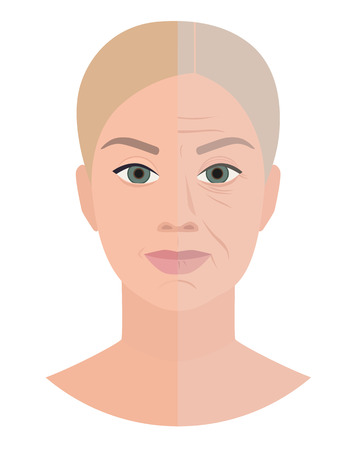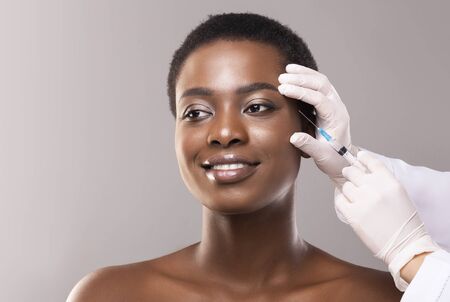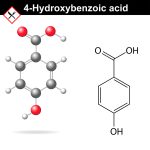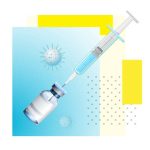1. Understanding Acne-Prone Skin
Acne can be frustrating, but understanding why it happens is the first step toward managing it effectively. If you have acne-prone skin, you might notice frequent breakouts, clogged pores, and inflammation. Lets take a closer look at what causes acne, the different types of breakouts, and how your skin type plays a role.
Common Causes of Acne
Acne occurs when hair follicles become clogged with oil and dead skin cells. Several factors contribute to breakouts, including:
- Excess Oil Production: When your skin produces too much sebum (oil), it can clog pores and lead to pimples.
- Bacteria: The presence of Propionibacterium acnes (P. acnes) bacteria on the skin can trigger inflammation and cause breakouts.
- Hormonal Changes: Fluctuations in hormones, especially during puberty, menstruation, or stress, can increase oil production.
- Poor Skincare Habits: Using harsh or pore-clogging products may irritate your skin and worsen acne.
- Diet & Lifestyle: High-glycemic foods, dairy products, and stress have been linked to worsening acne for some individuals.
Types of Acne
Not all acne is the same. Identifying your breakout type can help you choose the right skincare routine. Here are the most common types of acne:
| Type | Description |
|---|---|
| Whiteheads | Small, closed clogged pores that appear as white or flesh-colored bumps. |
| Blackheads | Pores clogged with oil and dead skin that turn black due to oxidation. |
| Papules | Small red bumps that feel tender and inflamed but don’t contain pus. |
| Pustules | Pimples filled with pus that appear red with a white or yellow center. |
| Nodules | Larger, painful lumps deep under the skin that dont have a visible head. |
| Cystic Acne | The most severe type of acne; large, pus-filled cysts that can lead to scarring. |
The Role of Skin Type in Acne
Your skin type influences how often you experience breakouts and which skincare products work best for you. Heres how different skin types affect acne:
- Oily Skin: Produces excess sebum, making it more prone to clogged pores and breakouts.
- Combination Skin: Has both oily and dry areas; typically experiences acne in the T-zone (forehead, nose, chin).
- Sensitive Skin: Can easily become irritated by harsh ingredients, leading to redness and breakouts.
- Dry Skin: Lacks moisture but can still develop acne due to dead skin buildup clogging pores.
- Normal Skin: Less prone to acne but may still experience occasional breakouts due to hormonal or environmental factors.
The Importance of Knowing Your Skin Type
If youre struggling with acne-prone skin, understanding its underlying causes and identifying your breakout type will help you build an effective skincare routine. The next step is choosing the right products that target your specific needs while keeping your skin balanced and healthy.
2. Cleansing: The Foundation of Clear Skin
Keeping your skin clean is one of the most important steps in managing acne. Using the right cleanser can help remove excess oil, dirt, and bacteria without stripping your skin of its natural moisture. But how do you choose the best cleanser for acne-prone skin, and how often should you wash your face? Let’s break it down.
Best Cleansers for Acne-Prone Skin
Not all cleansers are created equal, especially when dealing with acne. Look for gentle, non-comedogenic formulas that won’t clog pores. Here are some common types of cleansers that work well for acne-prone skin:
| Type of Cleanser | Benefits | Best For |
|---|---|---|
| Foaming Cleanser | Helps remove excess oil and unclog pores | Oily and combination skin |
| Cream Cleanser | Mild and hydrating, prevents over-drying | Dry or sensitive skin |
| Gel Cleanser | Cools and soothes while deep cleansing | Oily and acne-prone skin |
| Sulfur-Based Cleanser | Kills acne-causing bacteria and reduces inflammation | Persistent acne breakouts |
| Benzoyl Peroxide Cleanser | Powers through stubborn breakouts with antibacterial properties | Cystic or severe acne |
| Salicylic Acid Cleanser | Dissolves dead skin cells and unclogs pores | Mild to moderate acne-prone skin |
How Often Should You Wash Your Face?
The key to washing your face is balance—overwashing can strip your skin of essential oils, while under-washing can lead to clogged pores. Here’s a simple guideline:
- Morning: Wash your face to remove sweat and oil that accumulated overnight.
- Evening: Always cleanse before bed to remove makeup, dirt, and pollutants.
- Avoid excessive washing: Washing more than twice a day can cause irritation and trigger more breakouts.
- If you sweat: After exercising or sweating heavily, rinse with water or use a gentle cleanser.
Tips for Preventing Irritation While Cleansing
A proper cleansing routine goes beyond just picking the right product. Follow these tips to keep your skin calm and healthy:
- Avoid harsh scrubs: Scrubbing too hard can damage your skin barrier and worsen inflammation.
- Lukewarm water is best: Hot water can strip moisture from your skin, leading to dryness and irritation.
- PAT dry, don’t rub: Use a soft towel to pat your face dry instead of rubbing aggressively.
- Avoid alcohol-based cleansers: These can be overly drying and may cause more oil production as your skin tries to compensate.
- Ditch the washcloths: They can harbor bacteria that may contribute to breakouts.
- If using active ingredients: If your cleanser contains benzoyl peroxide or salicylic acid, follow up with a gentle moisturizer to prevent dryness.
Cleansing is the first step in any skincare routine, especially for acne-prone skin. By choosing the right cleanser and following good habits, you’ll set the foundation for clearer, healthier-looking skin.

3. Exfoliation and Treatments
Exfoliation is a key step in any skincare routine, especially for acne-prone skin. It helps remove dead skin cells, unclog pores, and promote cell turnover. However, using the right exfoliating ingredients is crucial to avoid irritation and worsening breakouts.
The Benefits of Exfoliation
- Removes dead skin cells that can clog pores
- Helps prevent acne breakouts
- Improves skin texture and tone
- Enhances the absorption of other skincare products
Best Ingredients for Acne Control
There are two main types of exfoliants: physical and chemical. For acne-prone skin, chemical exfoliants are usually the best option because they penetrate the pores more effectively without causing micro-tears on the skin.
| Ingredient | How It Works | Best for Skin Type |
|---|---|---|
| Salicylic Acid (BHA) | Penetrates deep into pores to dissolve excess oil and clear out impurities. | Oily and acne-prone skin |
| Benzoyl Peroxide | Kills acne-causing bacteria and reduces inflammation. | Mild to moderate acne-prone skin |
| Glycolic Acid (AHA) | Removes dead skin cells from the surface, promoting smoother texture. | Combination or acne-prone skin with dryness |
How to Use Exfoliants Effectively
- Start Slowly: If youre new to exfoliation, begin by using it 2-3 times per week to avoid irritation.
- Avoid Over-Exfoliating: Too much exfoliation can damage your skin barrier and lead to redness or sensitivity.
- Use at Night: Chemical exfoliants can make your skin more sensitive to sunlight, so its best to apply them in the evening.
- Follow with Moisturizer: Hydration is essential after exfoliation to maintain a healthy skin barrier.
- Always Wear Sunscreen: Since exfoliation reveals fresh skin cells, applying SPF daily is crucial to protect against sun damage.
Treatment Products to Consider
If you have persistent acne, incorporating treatment products with active ingredients like salicylic acid or benzoyl peroxide can help keep breakouts under control. Look for spot treatments or serums designed specifically for acne-prone skin.
By using the right exfoliants and treatments in moderation, you can achieve clearer, healthier skin without unnecessary irritation. The key is consistency and understanding what works best for your unique skin type!
4. Hydration and Moisturization
Many people with acne-prone skin believe that moisturizing will make their skin oilier and lead to more breakouts. However, skipping moisturizer can actually do more harm than good. When your skin lacks hydration, it may produce even more oil to compensate, which can clog pores and worsen acne. The key is to choose the right type of moisturizer that hydrates without feeling heavy or greasy.
Why Moisturizing Is Essential for Oily and Acne-Prone Skin
Your skin needs hydration to maintain a healthy barrier and function properly. When the skin becomes too dry, it can trigger excess oil production, leading to clogged pores and breakouts. A well-balanced skincare routine includes a lightweight, non-comedogenic moisturizer that provides hydration without adding extra oil.
Best Lightweight Moisturizers for Acne-Prone Skin
The best moisturizers for acne-prone skin are those that are oil-free, non-comedogenic (wont clog pores), and provide hydration without heaviness. Look for ingredients like hyaluronic acid for hydration, niacinamide to calm inflammation, and ceramides to strengthen the skin barrier.
| Moisturizer Type | Key Ingredients | Best For |
|---|---|---|
| Gel-Based Moisturizer | Hyaluronic Acid, Aloe Vera | Oily and Combination Skin |
| Lotion-Based Moisturizer | Ceramides, Niacinamide | Sensitive and Dry Acne-Prone Skin |
| Oil-Free Cream | Squalane, Peptides | Blemish-Prone but Dehydrated Skin |
How to Keep Your Skin Balanced
The key to keeping your skin balanced is using the right combination of products. Start with a gentle cleanser, follow up with a lightweight moisturizer, and use targeted treatments like salicylic acid or benzoyl peroxide as needed. Avoid over-washing or using harsh products that strip your skin’s natural moisture barrier.
Tips for Maintaining Hydrated Skin Without Clogging Pores:
- Avoid alcohol-based toners that can dry out your skin.
- Use a hydrating serum with hyaluronic acid before applying moisturizer.
- If you wear makeup, choose non-comedogenic foundations and powders.
- Mist your face with a light facial spray throughout the day if needed.
- Drink plenty of water to support overall skin hydration.
A well-hydrated complexion helps reduce irritation, prevent excessive oil production, and keep acne under control. Choosing the right moisturizer can make all the difference in maintaining clear, healthy-looking skin.
5. Sun Protection and Lifestyle Tips
Taking care of acne-prone skin isn’t just about cleansers and treatments—it’s also about protecting your skin from external damage and making healthy lifestyle choices. Here’s why SPF is essential, how diet and sleep play a role, and what other habits can support clearer skin.
Why SPF Is a Must for Acne-Prone Skin
Sunscreen is often overlooked in acne skincare routines, but it’s crucial for maintaining healthy skin. UV rays can worsen inflammation, cause hyperpigmentation, and break down collagen, leading to premature aging. If you’re using acne treatments like retinoids or exfoliating acids, your skin is even more sensitive to the sun.
How to Choose the Right Sunscreen
Not all sunscreens are created equal, especially for acne-prone skin. Look for these features when selecting an SPF:
| Feature | Why It Matters |
|---|---|
| Oil-Free & Non-Comedogenic | Prevents clogged pores and breakouts |
| SPF 30 or Higher | Provides adequate protection from harmful UV rays |
| Broad-Spectrum Protection | Shields against both UVA (aging) and UVB (burning) rays |
| Lightweight & Matte Finish | Avoids greasy or heavy feeling on oily/acne-prone skin |
The Role of Diet in Acne Management
Your diet can have a big impact on your skin. While no single food causes acne, certain dietary choices may trigger breakouts or worsen inflammation.
Foods That May Trigger Acne
- Dairy Products: Some studies suggest dairy may contribute to hormonal imbalances that lead to breakouts.
- Sugary Foods & Processed Carbs: High glycemic foods can spike insulin levels, increasing oil production.
- Greasy & Fried Foods: While not a direct cause of acne, they can promote inflammation in the body.
Skin-Friendly Foods
- Berries & Leafy Greens: Packed with antioxidants that help reduce inflammation.
- Nuts & Seeds: Rich in omega-3 fatty acids that support healthy skin.
- Lentils & Whole Grains: Provide steady energy without spiking blood sugar levels.
The Importance of Sleep for Clear Skin
Poor sleep can increase stress hormones like cortisol, which may lead to more breakouts. Aim for at least 7–9 hours of quality sleep each night to allow your skin time to repair and regenerate.
Lifestyle Habits That Support Clear Skin
- Manage Stress: High stress can trigger hormonal imbalances that lead to acne. Try meditation, deep breathing exercises, or yoga.
- Avoid Touching Your Face: Hands carry bacteria that can transfer onto your skin and cause breakouts.
- Cleansing After Sweating: Sweat mixed with dirt and oils can clog pores—always wash your face after workouts.
- Keeps Pillowcases Clean: Bacteria and oil buildup on pillowcases can contribute to breakouts. Change them regularly.
Merging good skincare with smart lifestyle choices will help you maintain clearer skin in the long run. Protecting your skin from the sun, eating nutrient-rich foods, getting enough sleep, and managing stress are all key factors in achieving a healthier complexion.


